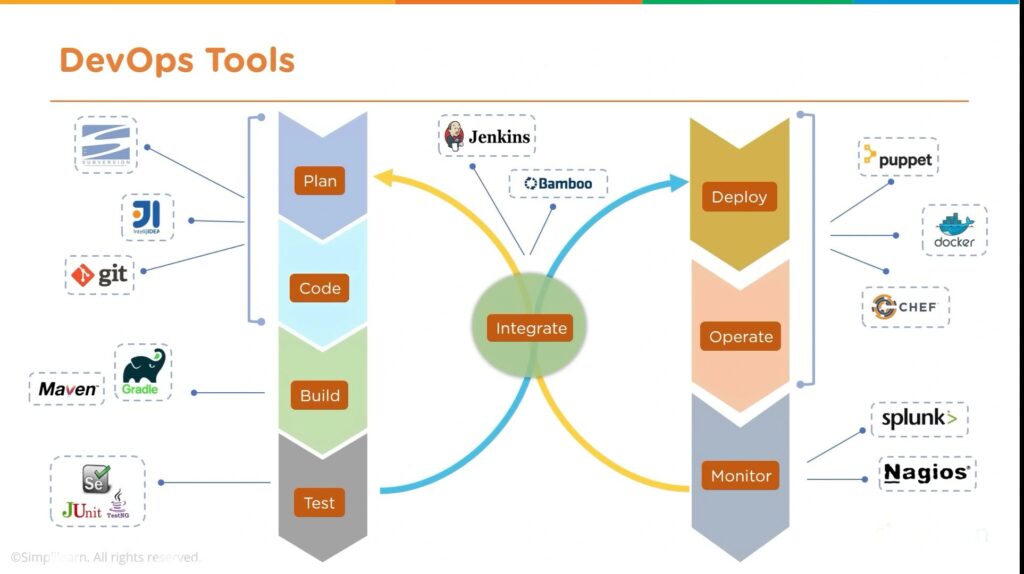
WaterFall project management is historical. Agile with its derivatives – Scrum, Kanban are prevailing but DevOps is the evolution of Agile project management. DevOps – software development (Dev) and IT operations (Ops) shorten the systems development life cycle and provide continuous delivery with high software quality. ERP implementation is a complex, time-consuming and challenging process that involves the integration of multiple business processes and systems. DevOps helps to streamline and improve the implementation process.
Benefits of using DevOps in ERP implementation:
Reduced time to market:
DevOps reduces the time it takes to implement an ERP system by automating manual tasks and streamlining the development and deployment process. It improves the quality of the ERP implementation by automating testing and continuous integration
Increased agility:
Making the organizations to be more agile and responsive to change. This is important for ERP implementations, which can often change scope and requirements over time. Automating tasks and improving efficiency ensures cost reduction.
Some specific ways to use DevOps in ERP implementation:
Continuous integration and continuous delivery (CI/CD) pipeline: Used to automate the build, test, and deployment process, which reduces the time it takes to deploy changes to the ERP system and improve the quality of the deployment process.
Use infrastructure as code:
Infrastructure as code allows to define the infrastructure in code. This helps to automate the provisioning and configuration of your ERP environment, which reduces the time it takes to set up and deploy your ERP system.
Use cloud computing:
Cloud computing provides a scalable and flexible platform for ERP implementation. This helps to reduce the costs of ERP implementation and make it easier to deploy and manage your ERP system. DevOps is more than just a set of tools and practices. It is also a culture of collaboration and continuous improvement to create a more efficient and effective ERP implementation process.
Here are some additional tips for using DevOps in ERP implementation. Starting small Don’t try to implement DevOps across your entire ERP implementation at once. Getting buy-in from all stakeholders is crucial. DevOps is a team effort. It is important to get buy-in from all stakeholders, including business users, IT operations, and development teams.
Use the right tools and technologies: There are a number of tools and technologies that can help to implement DevOps in ERP implementation. Choose the tools and technologies that are right for your organization and your ERP system. DevOps can be a valuable tool for ERP implementation. By adopting DevOps practices, you can reduce the time to market, improve the quality of your ERP implementation, increase your agility, and reduce costs.

Leave a Reply